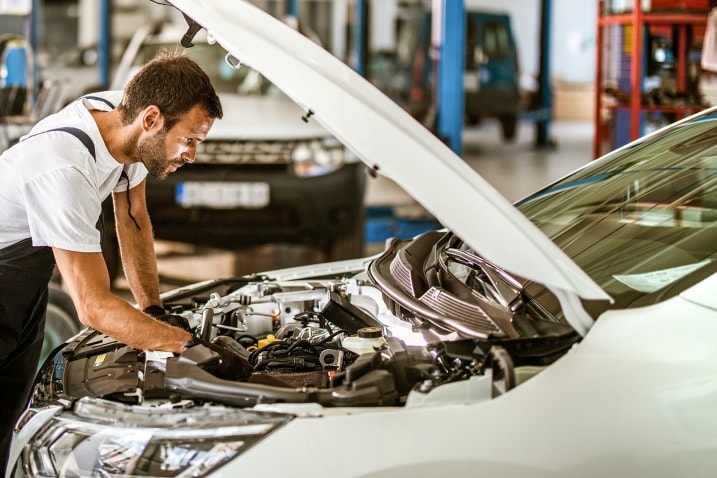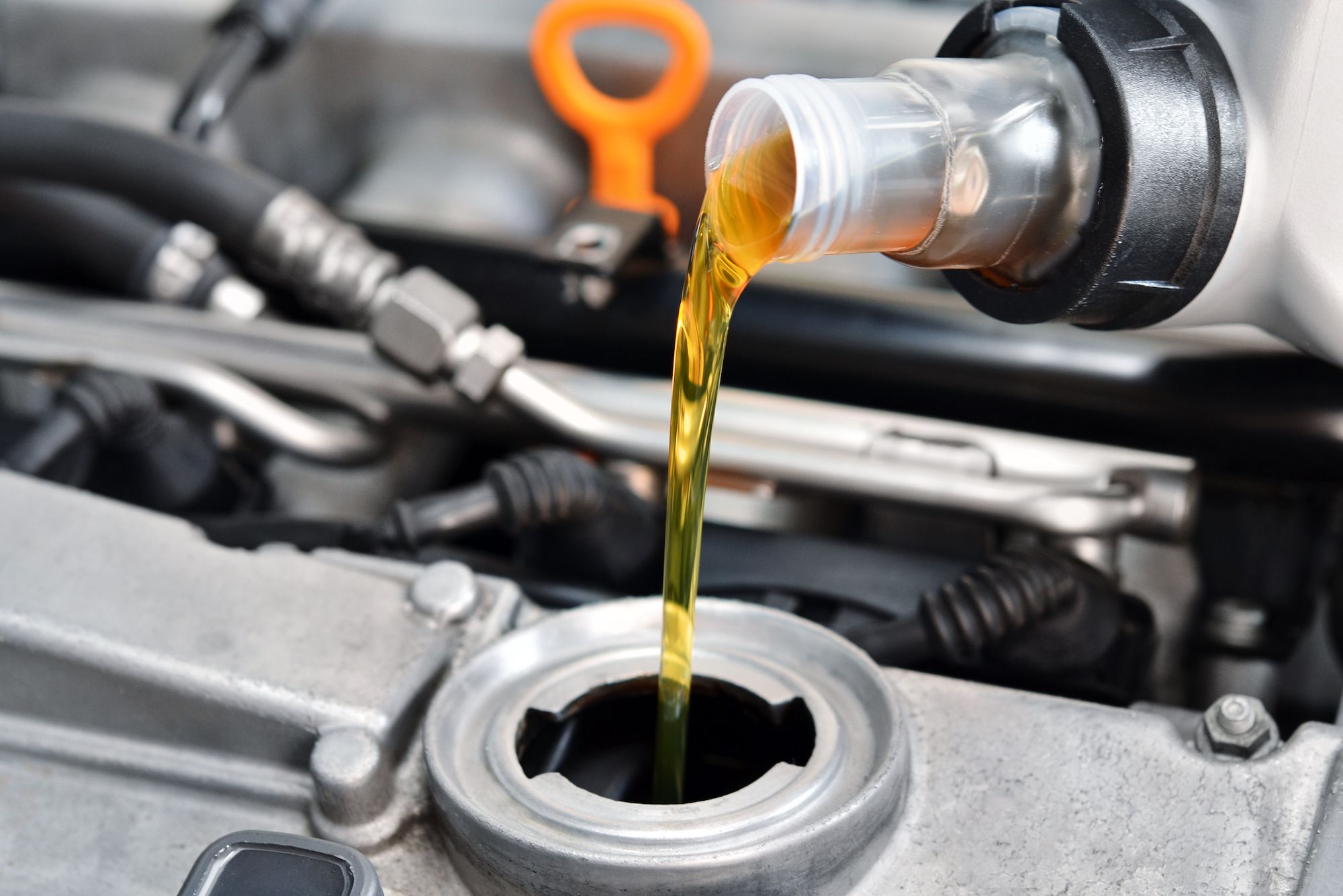Featured
When your vehicle overheats, it can seem like a significant emergency, but staying calm and complying with the best steps can prevent severe engine damages and assistance get you back when traveling safely. In this message, we'll discover what to do if your cars and truck overheats and provide preventative pointers to lower the risk of overheating in the future.
What to Do If Your Automobile Gets too hot. Pull Over to a Safe Location The very first and crucial step if your automobile starts to get too hot is to draw over to a risk-free spot as soon as possible. Activate your threat lights and lead your automobile to the shoulder or into a parking whole lot. Maintaining your vehicle running while it's overheated can cause extreme damages to the engine, so it's important to close the engine off right now.
Let the Engine Cool Down Once you have actually safely stopped, allow the engine to cool off. You need to never ever attempt to open up the radiator cap while the engine is still warm, as the release of vapor or warm coolant can trigger burns. Wait at least 15-20 minutes to allow the engine temperature to drop to a more secure degree prior to continuing.
![]()
Inspect the Coolant Degree After the engine has cooled, examine the coolant levels by checking the storage tank or radiator. Leading it off with a mix of coolant and water (as defined by your automobile's maker) if it's low. Constantly use caution when opening the coolant reservoir, as stress might have accumulated.
Try To Find Noticeable Leakages While you wait on the engine to cool down, visually inspect the radiator, tubes, and coolant storage tank for any kind of visible leakages or splits. A leaking radiator or hose pipe is a typical source of getting too hot. It's better to call a tow solution than risk driving better and creating additional damage. if you discover a significant leakage.
Restart the Engine After allowing the engine to cool and guaranteeing the coolant is covered off, begin the engine and check the temperature level scale. If the temperature remains to rise swiftly, it's finest to shut the engine off and require roadside assistance or a tow to the nearest auto mechanic.
![]()
Exactly How to avoid Overheating in the Future. Frequently Check Coolant Degrees Among the easiest means to stop getting too hot is by preserving the best level of coolant. With time, coolant can vaporize, so frequently examine the coolant levels in the tank. Reduced coolant degrees can create the engine to get too hot quickly, so top it off as required.
Examine the Radiator The radiator plays a vital role in maintaining the engine cool. Periodically examine the radiator for any obstructions, dirt, or debris that can obstruct airflow. If you notice any kind of indicators of damage, such as rust or leaks, have it fixed or replaced immediately.
The thermostat manages the flow of coolant, while the water pump circulates it through the engine. If either part is faulty, it can stop proper air conditioning.
Flush the Cooling System Over time, coolant can weaken and become inadequate, causing a build-up of debris in the system. Flushing the air conditioning system every 30,000 miles, or as suggested in your car's manual, helps to eliminate any sludge or build-up and ensures the cooling system is functioning properly.
Display the Condition of the Hoses The pipes in your lorry's cooling system can break or crack in time. Inspect the tubes for any kind of indicators of wear, such as bulging, splits, or leakages, and change them if required. Stopping coolant leaks can go a long means in avoiding overheating.
![]()
Drive Properly Aggressive driving, such as speeding up swiftly or driving at broadband, places extra strain on your engine and its cooling system. Try to drive at moderate rates, specifically on warm days or when driving on high slopes, to reduce the possibilities of overheating.
Stay Clear Of Overloading Your Car Carrying excessive weight in your lorry places tension on the engine and air conditioning system. Always be mindful of your vehicle's weight restriction, particularly if you're transporting hefty tons, towing a trailer, or driving cross countries in heat.
Conclusion. An overheating car can be a frightening experience, however recognizing how to react and stop it can conserve you time, cash, and prospective engine damage. Always inspect your coolant levels, evaluate vital components like the radiator, thermostat, and tubes, and adhere to a normal maintenance timetable. By staying on top of your vehicle's air conditioning system, you can lower the threat of overheating and appreciate a smoother, much safer driving experience.
What to Do If Your Automobile Gets too hot. Pull Over to a Safe Location The very first and crucial step if your automobile starts to get too hot is to draw over to a risk-free spot as soon as possible. Activate your threat lights and lead your automobile to the shoulder or into a parking whole lot. Maintaining your vehicle running while it's overheated can cause extreme damages to the engine, so it's important to close the engine off right now.
Let the Engine Cool Down Once you have actually safely stopped, allow the engine to cool off. You need to never ever attempt to open up the radiator cap while the engine is still warm, as the release of vapor or warm coolant can trigger burns. Wait at least 15-20 minutes to allow the engine temperature to drop to a more secure degree prior to continuing.

Inspect the Coolant Degree After the engine has cooled, examine the coolant levels by checking the storage tank or radiator. Leading it off with a mix of coolant and water (as defined by your automobile's maker) if it's low. Constantly use caution when opening the coolant reservoir, as stress might have accumulated.
Try To Find Noticeable Leakages While you wait on the engine to cool down, visually inspect the radiator, tubes, and coolant storage tank for any kind of visible leakages or splits. A leaking radiator or hose pipe is a typical source of getting too hot. It's better to call a tow solution than risk driving better and creating additional damage. if you discover a significant leakage.
Restart the Engine After allowing the engine to cool and guaranteeing the coolant is covered off, begin the engine and check the temperature level scale. If the temperature remains to rise swiftly, it's finest to shut the engine off and require roadside assistance or a tow to the nearest auto mechanic.

Exactly How to avoid Overheating in the Future. Frequently Check Coolant Degrees Among the easiest means to stop getting too hot is by preserving the best level of coolant. With time, coolant can vaporize, so frequently examine the coolant levels in the tank. Reduced coolant degrees can create the engine to get too hot quickly, so top it off as required.
Examine the Radiator The radiator plays a vital role in maintaining the engine cool. Periodically examine the radiator for any obstructions, dirt, or debris that can obstruct airflow. If you notice any kind of indicators of damage, such as rust or leaks, have it fixed or replaced immediately.
The thermostat manages the flow of coolant, while the water pump circulates it through the engine. If either part is faulty, it can stop proper air conditioning.
Flush the Cooling System Over time, coolant can weaken and become inadequate, causing a build-up of debris in the system. Flushing the air conditioning system every 30,000 miles, or as suggested in your car's manual, helps to eliminate any sludge or build-up and ensures the cooling system is functioning properly.
Display the Condition of the Hoses The pipes in your lorry's cooling system can break or crack in time. Inspect the tubes for any kind of indicators of wear, such as bulging, splits, or leakages, and change them if required. Stopping coolant leaks can go a long means in avoiding overheating.

Drive Properly Aggressive driving, such as speeding up swiftly or driving at broadband, places extra strain on your engine and its cooling system. Try to drive at moderate rates, specifically on warm days or when driving on high slopes, to reduce the possibilities of overheating.
Stay Clear Of Overloading Your Car Carrying excessive weight in your lorry places tension on the engine and air conditioning system. Always be mindful of your vehicle's weight restriction, particularly if you're transporting hefty tons, towing a trailer, or driving cross countries in heat.
Conclusion. An overheating car can be a frightening experience, however recognizing how to react and stop it can conserve you time, cash, and prospective engine damage. Always inspect your coolant levels, evaluate vital components like the radiator, thermostat, and tubes, and adhere to a normal maintenance timetable. By staying on top of your vehicle's air conditioning system, you can lower the threat of overheating and appreciate a smoother, much safer driving experience.
Latest Posts
Protect Your Home with Quality Residential Roofing
Published May 27, 25
1 min read
Uncover Reduce Expenses on Car Maintenance with Montclare Auto Repair’s Exclusive Deals
Published May 27, 25
1 min read
Find Montclare Auto Repair’s Premier Services and Why Drivers Choose Them
Published May 27, 25
1 min read
More
Latest Posts
Protect Your Home with Quality Residential Roofing
Published May 27, 25
1 min read
Uncover Reduce Expenses on Car Maintenance with Montclare Auto Repair’s Exclusive Deals
Published May 27, 25
1 min read
Find Montclare Auto Repair’s Premier Services and Why Drivers Choose Them
Published May 27, 25
1 min read